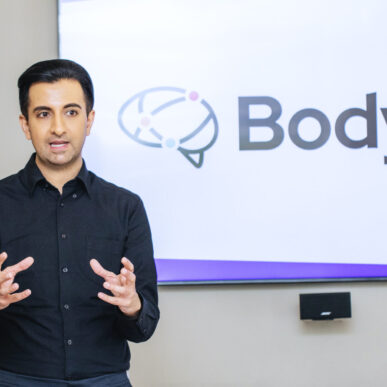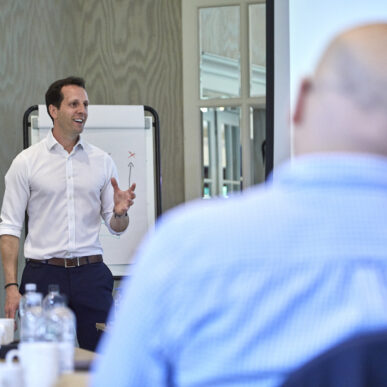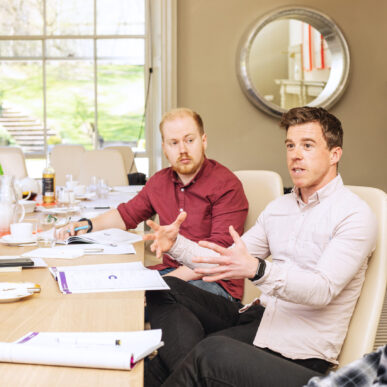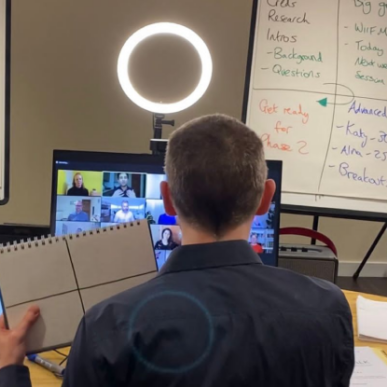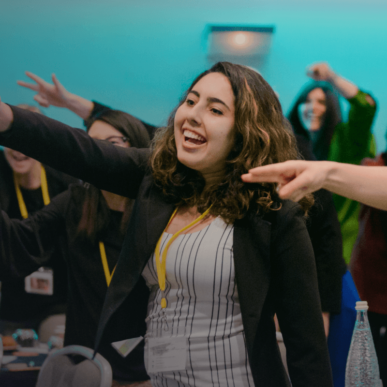“You don’t need to know what the other person knows to have great conversations; you just need to be interested.”
How to have great conversations
The easiest things are often the most difficult to do. Having a conversation is a good example. It should be simple – it’s only talking, right? – yet so many of us, particularly in business, get it wrong.
Why?
Here’s the thing, and it’s important: we don’t always listen. Having a good conversation is more about listening than talking.
Don’t take my word for it; take note of what the late Larry King, the celebrated chat show host and master of conversation, said about the importance of listening. King told the Columbia Journalism Review,
“If you don’t listen, you’re not a good interviewer. I hate interviewers who come with a long list of prepared questions because they’re going to depend on going from the fourth question to the fifth question without listening to the answer of the fourth question. And that’s not the way it works for me. So I concentrate solely on the answer, and I trust my instincts to come up with questions”.
Why empathy matters
There is science in what King says: psychologists describe listening acuity and empathy as foremost in predicting if conversations will be successful.
Here’s something to keep in mind. Empathy happens when you listen with the intent to understand rather than with the intent to reply. Larry King knew this and utilised his good listening skills to create empathy with his guests, relaxing them into an open – and often fascinating – conversation. The less he said, the more interesting the interview became.
If you think this interpersonal skill of listening is nothing, think again. When King first interviewed Frank Sinatra (who rarely gave interviews), Sinatra’s people told him not to bring up his son’s kidnapping. King was sensitive to this request, and at the beginning of the interview, he deployed his usual emphasis on listening.
And then an astonishing thing happened.
As the interview progressed, King’s empathy and hard listening made a strong connection with the usually acerbic Sinatra. In this relaxed frame of mind, he opened up about the trauma of his son’s kidnapping.
Sinatra subsequently said King had ‘the ability to make the camera disappear’.
Keep it simple
There’s more. Consider how when Larry did speak, it was to ask simple, concise questions.
‘What happened?’
‘Why did you do this?’
King’s secret was to ask questions arising from genuine curiosity and without agenda. He kept his questions short and open, giving his guests the space and opportunity to speak openly without fearing their subjective experience being interrogated by compound questions. They could tell their story. And Larry would listen, not judge or contradict.
Emotional intelligence
Even better, Larry was open about his lack of knowledge. You see, admitting you don’t know stuff is smart; it’s emotionally intelligent.
Larry described himself as a layman. He wasn’t an expert in any of the fields his guests were famous for. Among those he interviewed were politicians, doctors, lawyers, scientists and actors. Accepting his lack of knowledge, Larry’s approach was one of intense curiosity. He didn’t play intellectual top trumps, instead he crafted an environment where the guest felt what he had to say was interesting, important and insightful.
Can you imagine how great that feels?
The point is this: You don’t need to know what the other person knows to have a great conversation; you need to be interested.
We can learn much from Larry King when it comes to communication skills, and it boils down to three things:
Listen more, speak less and be curious.
If you’d like to have more productive and meaningful conversations to build stronger relationships, then check out our training and online communication courses.








